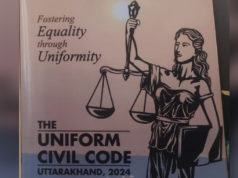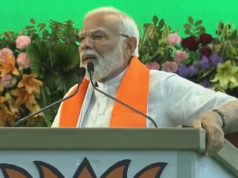Uttarakhand set to Become the First state to enact a common personal law.
In a historic move, the Uttarakhand Cabinet has given the green light to the eagerly awaited Uniform Civil Code (UCC) draft Bill, marking a significant step towards the state becoming the first in India to implement a common personal law.
The decision, made on Sunday, sets the stage for a special Assembly session commencing on Monday, during which the UCC legislation is expected to be passed and transformed into law. If successfully enacted, Uttarakhand, governed by the BJP, will stand as the pioneering state in the post-independence era to implement the Uniform Civil Code.
Under the Indian Constitution, states possess the authority to legislate on the Uniform Civil Code. Entry 5 of the Concurrent List grants states the power to enact laws related to marriage, divorce, infants, minors, adoption, wills, succession, joint family, and partition.
The draft Bill is scheduled to be presented in the state Assembly on Tuesday and is anticipated to be approved during the special Assembly session devoted exclusively to UCC discussions from February 5 to 8.
The Uniform Civil Code, a longstanding promise of the BJP, joins the ranks of other fulfilled commitments such as the abrogation of Article 370 in Jammu and Kashmir and the construction of the Ram Mandir in Ayodhya. Rather than pursuing a national-level UCC, the BJP-led government has opted for the state Assembly route to establish a common personal law.
Key provisions of the UCC draft include a uniform legal marriageable age for girls and boys across various faiths, regulation of live-in relationships with mandatory reporting, a ban on polygamy, and the prohibition of discriminatory customs such as ‘nikah halala’ in some faiths. Sources indicate that the draft law may recommend raising the legal age of marriage for girls beyond the current age of 18.
The draft is also expected to propose uniformity in the grounds for the dissolution of marriage based on the presumption of death. Currently, different personal laws stipulate varying durations for the presumption of death, such as seven years in Hindu law and four years in Muslim law.
Additionally, the UCC draft may address the division of property among legal heirs, aiming to streamline inheritance and maintenance issues. While adoption is not covered by the Bill, it is likely to include provisions for simplifying marriage registration processes and improving existing divorce laws.
It remains to be seen whether the draft will address the issue of maintenance, which has different practices across various faiths, despite the secular provision of Section 125, CrPC, mandating maintenance for spouses, children, fathers, and mothers.
Notably, the draft Bill exempts the state’s Scheduled Tribes (STs), constituting 2.9% of the population, from its provisions.








